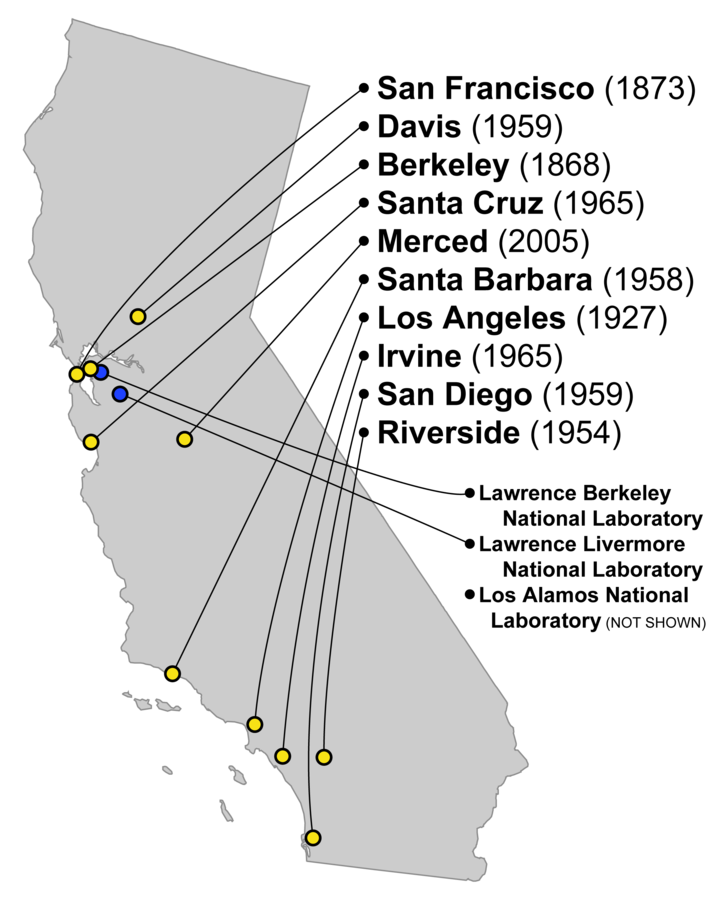Education
A University of California, for California
As the June 15th deadline for a California budget approaches, Kevin McCarty finds himself a power broker in a fight over billions of dollars of funding for the University of California.

Kevin McCarty (D-Sacramento), a lanky and energetic assemblyman, inhabits a cramped windowless office in the state capital. He is a freshman after all, low on the seniority list when it comes to choice offices. But as the June 15th deadline for a California budget approaches, McCarty finds himself a power broker in a fight over billions of dollars of funding for the University of California. A game-changing proposal McCarty is backing even spilled out to the presidential race after presumptive nominee Hillary Clinton embraced it.
McCarty is the chairman of the Assembly Budget Subcommittee on Education Finance.
That’s not a very flashy sounding position, but McCarty is making the most of it. Earlier this spring McCarty took on UC Davis Chancellor Linda Katehi, siding with students who occupied an administration building and called on Katehi to be fired or resign.
At the outset, the controversy was about Katehi’s judgement in accepting positions on the boards of Devry University, a chain of for-profit schools under investigation by the U.S Justice Department, and textbook publisher John Wiley and Sons. The chancellor received hundreds of thousands of dollars in additional income from her board appointments.
Initially, UC President Janet Napolitano acknowledged that the chancellor had made mistakes, but she said none were so grievous that they warranted the respected Greek-born engineer’s removal as chancellor.
Support for Katehi unraveled when details emerged about $175,000 in contracts she approved partly to scrub from the internet references to a 2011 pepper spraying incident of students by UC Davis police. Napolitano suspended Katehi in late April. Few suspect that she will be reinstated.
McCarty remains unyielding in his criticism. “She was a great fundraiser, but she could have been a great fundraiser and still been ethical. She could have avoided serving on corporate boards that profit off of college students,” McCarty told Capital &Main.
The controversy has hurt UC’s image and and caused many to question whether one of California’s most venerable institutions has a values crisis. As Los Angeles Times columnist Michael Hiltzik wrote last weekend, “universities are getting cozier with businesses and industrialists, and less discerning about the pitfalls of these relationships, which include accepting donations with strings attached.”
With the budget, McCarty is taking aim at a bolder and more systemic change. That effort comes in the form of AB 1711. The legislation calls for the approval of a modest increase in funding proposed by Governor Jerry Brown of $20.2 million, bringing UC’s overall budget to $26 billion.
But there is a big string attached.
McCarty’s measure calls for a total reversal of what has been a major trend at UC: increasing number of higher-paying out-of-state students. Systemwide in the last decade, the number of out-of-state students has soared at UC, from 5 to to nearly 16 percent. At more elite campuses like UC Berkeley and UCLA the number is closer to 25 percent.
The rise of students in the system not hailing from the golden state is intentional. Out-of-state students pay nearly three times more in tuition. Those tuition dollars were supposed to boost funding for in-state students. But a scathing state audit released in March found that in too many cases, the additional money is going for opaque and bloated administrative costs, while space for instate students is shrinking.
The audit also found that in a ten-year period UC had a lower standard for out-of-state students. According to the audit, an estimated 4,500 Californians were rejected in favor of out-of-state students whose scores were worse or the same as the California students they displaced. “Over the past several years, the university has failed to put the needs of residents first,” the report concluded.
A legislative analysis found further evidence of the shrinking number of in-state slots. At the flagship UC Berkeley, the analysis found, since 2010 in state students have decreased 7% while the number of out of state students has increased 108%.
“The ticket to the middle class and a good paying job now is a college degree,” McCarty said. “And a UC degree based on those degrees are some of the best paying jobs around. More importantly report after report says that California needs to produce way more graduates than we are doing today.” McCarty points to one report by the Public Policy Institute of California, which found that the state will have a shortage of a million college graduates in 2025, unless access to college is increased.
Napolitano and UC vehemently opposes McCarty’s proposal. A UC spokesperson underscored a growing schism in Sacramento between legislators and the UC administration, telling Capital & Main, “we are concerned the approach of the bill will have the exact opposite effect of what is intended–the enrollment of more Californians.”
What’s remarkable is how little sway UC’s perspective is having. Last week AB 1711 passed the Assembly 78-2. McCarty says there is also concurrent language which is being negotiated as part of the budget.
McCarty says the reason mandating more slots for instate students is such a popular position is because his colleagues are tired of hearing from constituents about how their kid didn’t get into a good school even when they had a 4.0 and stellar SAT scores. “I get Facebook messages, I talk to people at the grocery store, at the soccer field, saying ‘right on!’ People are just astounded that we are rationing access for Californians while we have quadrupled access for people with a big pocketbook. There is a collective outrage.”
Part of that collective outrage is misdirected says Mark Paul, a historian whose book California Crack Up chronicles the boom and bust cycles of California budget cycles and the legacy of Proposition 13. “If you starve a man at home, how can you object if he seeks a meal elsewhere? Over the last two decades, state leaders and voters have made K-12 education, health care, public employee pensions, and tax cuts higher priorities than supporting UC.”
BROWN REPORTEDLY CALLS FOR A LID
Of course the biggest player in budget negotiations is Governor Jerry Brown. McCarty says he has spoken to Brown and that the governor supports the concept of rolling back the number out-of-state students who are accepted to UC. “The devil is in the details of how we are going to do it, but the governor told me he supports some type of cap on this policy, that it’s gotten out of hand. He used the word lid.”
Last week McCarty’s bill got an unexpected boost from democratic frontrunner Hillary Clinton, as she sought votes to put her over the top in California’s primary.
The race to be be the Democratic nominee has been infused with lofty rhetoric about addressing the high cost of college. During his stump speeches, Bernie Sanders’ lines about making public higher education free have been met with rousing applause. While not veering that far left, Hillary Clinton has also called for reducing the cost of university and making community college free.
During a meet and greet between Clinton and community leaders at a Mexican restaurant in Perris, California, McCarty’s bill came up. “I have to say, I approve of that,” Clinton said, adding “we have got to get back to using public colleges and university for that they were intended. If it is in California, for the children in California. If it is in New York, for the children in New York.”
At a rally at a community college in Sacramento on Monday, McCarty met with Clinton before helping introduce her on stage. “I told her thank you for standing up for my legislation, which says the focus should be UC for Californians. And she said ‘absolutely, but we need to fund them too.’”
Joe Rubin is an Emmy award winning investigative journalist. He has traveled the world, reporting for PBS Frontline/World, Al Jazeera, ABC’s Nightline, and NPR. Based in Sacramento, these days Joe reports on complex topics with global significance and relevance to people across California.
-

 State of InequalityApril 4, 2024
State of InequalityApril 4, 2024No, the New Minimum Wage Won’t Wreck the Fast Food Industry or the Economy
-

 State of InequalityApril 18, 2024
State of InequalityApril 18, 2024Critical Audit of California’s Efforts to Reduce Homelessness Has Silver Linings
-

 State of InequalityMarch 21, 2024
State of InequalityMarch 21, 2024Nurses Union Says State Watchdog Does Not Adequately Investigate Staffing Crisis
-

 Latest NewsApril 5, 2024
Latest NewsApril 5, 2024Economist Michael Reich on Why California Fast-Food Wages Can Rise Without Job Losses and Higher Prices
-

 California UncoveredApril 19, 2024
California UncoveredApril 19, 2024Los Angeles’ Black Churches Join National Effort to Support Dementia Patients and Their Families
-

 Latest NewsMarch 22, 2024
Latest NewsMarch 22, 2024In Georgia, a Basic Income Program’s Success With Black Women Adds to Growing National Interest
-

 Latest NewsApril 8, 2024
Latest NewsApril 8, 2024Report: Banks Should Set Stricter Climate Goals for Agriculture Clients
-

 Striking BackMarch 25, 2024
Striking BackMarch 25, 2024Unionizing Planned Parenthood





















